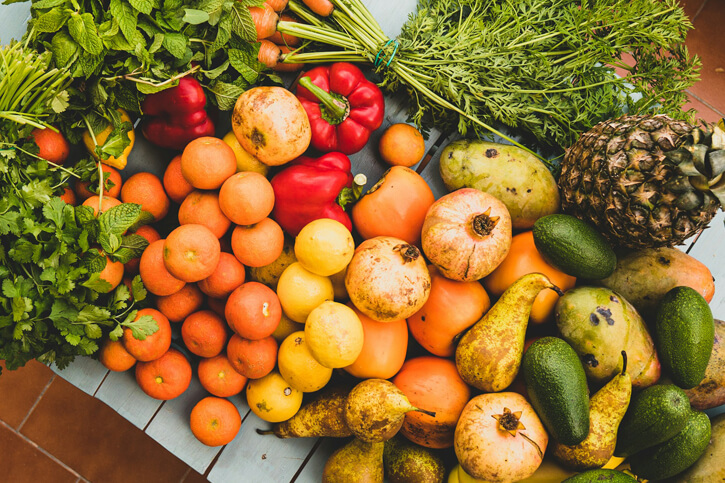In perimenopause and menopause, women experience an increase in inflammation due to decreased estrogen, progesterone, and testosterone.
Typically, progesterone and estrogen have anti-inflammatory effects on the body, but when the reduction in these hormones occurs, this causes a general increase in inflammation in the whole body.
This low-grade inflammation contributes to common menopause symptoms such as low energy, sore joints, skin issues, fatigue, stiffness, brain fog, anxiety, depression, and weight gain. This inflammation also contributes to chronic conditions like heart disease, diabetes, and cancer.
It is important to get control of the inflammation quickly to minimize the impact, and the best way to do that is by following an anti-inflammatory, low glycemic diet, high antioxidant diet. This will provide the body with essential fats, proteins, vitamins, minerals, and antioxidants that cells need to perform their best.
The goal is to eat a balanced diet high in nutrient-rich foods. The anti-inflammatory diet consists of the following:
1. Vegetables
Focus on high-water content, brightly coloured vegetables (or fruit, if low-GI – like berries). Eat as many high quality, brightly colored veggies, and fruit as you can find. The greater the diversity, the healthier your hormones and your microbiome will be. Aim to eat 2-3 colors of veggies per meal.
Fermented vegetables like sauerkraut and kimchi provide prebiotic fibre along with probiotic bacteria, which are great for our intestinal health.
2. Lean Protein
It’s important to get protein from both plant and animal sources, and there are pros and cons to each. Focus on organic and free-range eggs, wild fish, pasture-raised chicken, grass fed red meat like beef and lamb, and legumes such as beans, lentils, or soy products.
3. Whole grains
Focus on grains like rice, quinoa, buckwheat, millet, and oats. Whole grains are excellent sources of prebiotic fibre that feeds the healthy bacteria in your gut microbiome, and they stabilize blood sugar levels.
4. Fruit
Cherries, apples, citrus, melon, berries, red grapes (strawberries, blueberries, blackberries), and tomatoes.
5. Healthy fats
Fats are essential for cellular structure and organ function. Fats serve as the precursors to every single hormone that is manufactured in the human body – from testosterone to estrogen to cortisol and thyroid hormones. Aim to eat things like avocados, fatty fish, olives, nuts, and seeds.
If you’re not getting enough fat, your body will not see its environment as abundant enough to make adequate levels of hormones. Fats should accompany every meal, but (just like carbs) they need to be the right type of fats to be health-promoting.
By making little adjustments to your diet, you can reduce the inflammation in your body and prevent menopause symptoms. Menopause does not need to be difficult, it’s important to educate yourself and practice prevention.
I’ve written a couple books, one on anxiety and another on menopause, and if you want more information, check them out or find me online to follow me for more expert advice.

Michelle Biton is a leader and innovator in the health and wellness field. She has been inspiring women world-wide over the past 30 years through her books, newsletters and websites. She is a Health and Wellness Coach and a mental health advocate. Michelle has her Master’s Degree in Holistic Nutrition and a Certificate in Applied Science Health and Fitness Studies. She is also the author of the popular Pregnancy Without Pounds series, which focuses on the fitness and well-being of pregnant women, as well as The Instant Anxiety Solution and The Menopause Weight Loss Solution. Michelle is passionate about writing self-help books that empower people to change, implement healthy choices and live their best life possible. Learn more at michellebiton.com.





